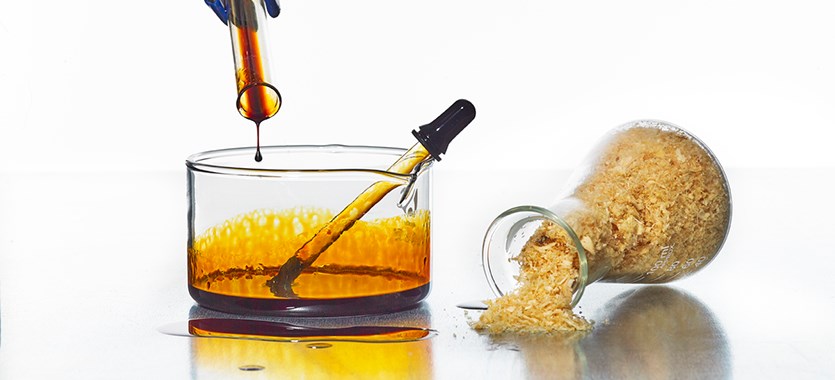The liquid is dark brown and the smell of the tar inspires thoughts of smokeries and fishing huts. This is the first sample of the pyrolysis oil that will be able to start being manufactured at Setra’s Kastet sawmill in Gävle in just a few years’ time. “As far as we know, it will be the first pyrolysis oil plant on an industrial scale in Sweden,” says Pontus Friberg, Enterprise Risk Manager at Setra.
Sawdust is a byproduct from sawmills, currently burned to produce heat energy. Turning it into bio-oil instead is a major leap forwards in terms of sustain ability. The process has been made possible thanks to a number of technological advances. When the sawdust is heated to high temperatures without oxygen, it undergoes a transformation from solid to liquid form. One of the products created is liquid tar, pyrolysis oil, which is then refined further.
Major environmental benefit
The bio-oil can replace fossil oil and, for example, be used in heating boilers in the energy sector and in industry in general. It can also be used to produce biofuel, which will be a significant contribution in the transition to a fossil-free transport sector. However the oil is used, the potential environmental benefits are huge, and even the Swedish Environmental Protection Agency is on board. The agency has allocated the project SEK 117 million from the government’s major Klimatklivet initiative to cut carbon emissions.
“Looking at the other wood industries in Sweden, more pyrolysis oil plants would be feasible. We must also remember that bio-oil is only one of all the new products we can develop in the forest industry. There are many more as yet undiscovered areas in the value chain where we can find benefits,” says Pontus.
Text: Linn Treijs
Photo: Björn Lofterud



